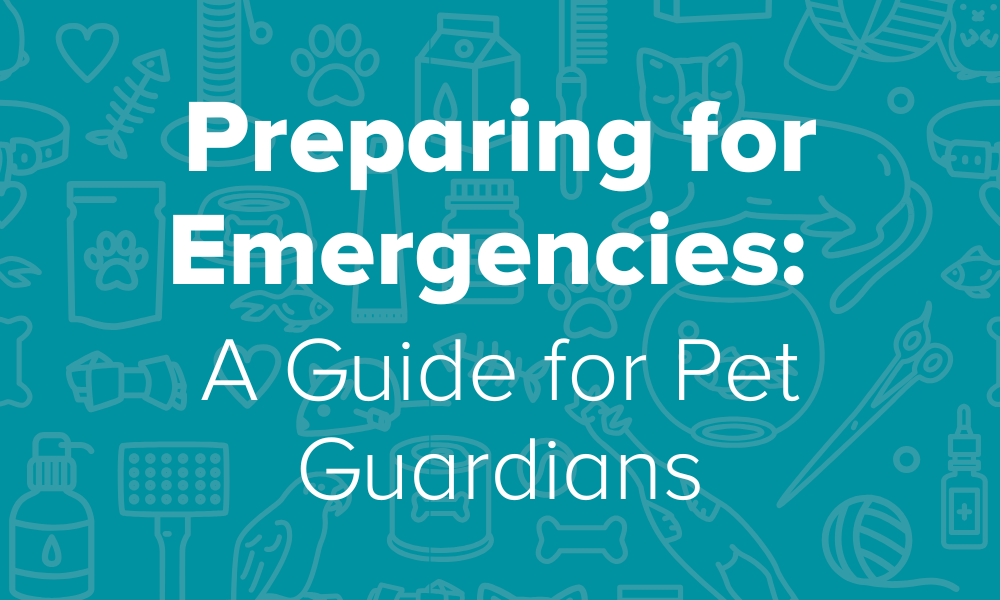Preparing for Emergencies: A Guide for Pet Owners

While we may not experience hurricanes often in New England, it’s important to be prepared in case of an emergency that requires evacuation. If it’s not safe for you to stay home, it’s not safe for your pets either. Having everything ready in one spot ensures you can grab your supplies and go quickly.
Shelter Planning
- Identify emergency shelters in your area and confirm if they accept pets. Many shelters now allow pets with their owners.
- Research pet-friendly hotels or arrange with friends or relatives where you and your pets could stay temporarily. Ensure these locations are far enough away to avoid being affected by the same emergency.
- Contact local animal shelters and boarding facilities to inquire about emergency accommodations.
- Consider designating a permanent caregiver for your pets in case something happens to you.
Pet Safety Essentials
- Microchip Your Pets: Microchipping is the easiest way to reunite with your pet if separated. Ensure your contact information is up-to-date.
- Identification: Keep a collar with an ID tag that includes your pet’s name, your phone number, and any urgent medical needs. Write the same information on your pet’s carrier.
Emergency Kit for Pets Prepare an emergency kit with supplies for approximately two weeks. Check it regularly and replace expired items. Include:
- Crate or carrier for each pet
- Pet first aid kit (consult your veterinarian for recommendations)
- Food (canned with pop tops or dry) and a manual can opener if needed
- Bottled water (enough for pets and humans)
- Copies of medical records and vaccination history
- Recent photographs of your pets
- At least a 7-day supply of any medications
- Collapsible food and water bowls
- Disposable litter trays and scoopable litter for cats
- Cage liners for dogs if needed
- Blankets or towels for comfort
- Cleaning supplies: paper towels, liquid soap, disinfectant, garbage bags, dry pet shampoo, or cleaning wipes
- Favorite toys to provide comfort and help with exercise during stressful times
Returning Home After an Emergency Returning home can be as stressful for your pet as it is for you. Consider the following:
- Check for debris or substances that could harm your pet.
- Monitor your pet’s behavior; they may be anxious or defensive, especially if familiar scents are altered.
- Allow time for your pet to readjust and feel comfortable again.
Being prepared can make a significant difference during an emergency. We hope these tips help keep you and your pets safe—and that you never have to use them.
